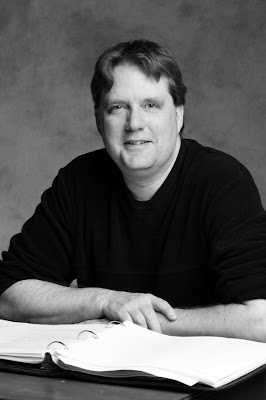 1) What the fuck is going on?
1) What the fuck is going on?
Life.
2) How did you make the transition from being a Stage Manager at the Shaw Festival to being the President of the Canadian Actors’ Equity Association (CAEA)?
I haven’t. I’m still a Stage Manager at the Shaw Festival. Being President is not a paid position in the same way that staff positions are paid.
It’s actually not much of stretch, when you think of it. The President is the Stage Manager of Council, not “in charge” of Equity. That is Council’s job, as a body. I make certain that Council has what it needs in order to do its governance work effectively, efficiently and creatively. Sound familiar?
3) Do you feel that the CAEA is currently living up to the spirit of its mandate?
For Council, that is the most important question of all.
Our mandate comes from the owners of Equity: its members. The mandate is not a static thing. Theatre changes, the world changes, and members’ needs change. The only way for us to keep on top of a living mandate is to regularly consult with the members.
To that end, we have just concluded a major survey of our membership. This will tell us what our mandate is going forward, how we are living up to it so far, and what we need to do to improve.
Although complete results are not in yet, what we have seen so far suggests that we are living up to our mandate in the areas that the members commonly regard as the most important. Beyond that, they would like us to improve in providing some of the “soft” benefits of membership, such as advocacy, advice, and various resources. Please be aware that I have just condensed 1,500 pages of results into two sentences. It is a much, much more detailed picture than that.
4) What do you see as the single-largest benefit of being a member of the CAEA?
This, too, was part of the survey. Preliminary results suggest that the highest-ranked benefits are:
Excellent working conditions;
enforceable contracts;
protection from abuse;
regular, secured payment;
fees no less than scale.
Personally, I don’t think there is any point in choosing just one. Many of them are tightly interwoven. We did an exercise in advance of the survey, where we asked four focus groups of randomly chosen members to start discarding benefits, beginning with those least important to them. It wasn’t too difficult at first, but it invariably got to a point where there were 6-8 benefits left – beyond that, it was very challenging for the focus groups to choose which were expendable.
5) What are some of the common contract-related mistakes being made by CAEA members?
I don’t deal with member contracts on that level, so I’ve turned to staff for some assistance on this.
The most common contract-related mistake is that quite often members have not familiarized themselves with the agreement or policy in which they are being engaged, prior to signing the contract. As a result, they are sometimes taken aback by the termination provisions under the agreement, or by other contractual obligations to the engager.
6) Do you have any unifying theories about labour unions and their relationship to the arts?
Your timing is impeccable. I just got back from a conference of the Fédération Internationale des Acteurs. Meeting with artist union representatives from a dozen countries, I realized how different artists’ needs are. There are actors across Europe struggling to retain employee status as we fight to retain independent contractor status, and there are theatre artists in other parts of the world who only dream of the kind of problems we in Canada worry about.
So, my unified theory is that the union is there to support the artists – to find out what their group needs are, and to assist them in achieving them.
7) What can independent theatre companies do to better inform themselves about CAEA-related matters?
Call one of our business reps. They are the expert source.
8) Any tips for how cash-poor theatre companies can make sure they are compensating their creative talent fairly?
I’m not the right person to be giving advice to cash-poor anything, and I have never run a theatre company.
9) If you could change one thing about the performing arts in Canada, what would it be?
30 million people would have the idea, at least once per year, to go see a show. Perhaps not all on the same day, though.
10) What do you know about stage management now that you wish you knew when you were younger?
Not what to do, but what to not do.
The Master doesn’t talk, he acts, and when his work is done, the people say, “Amazing: we did it all by ourselves!”
– Tao Te Ching, C. 17